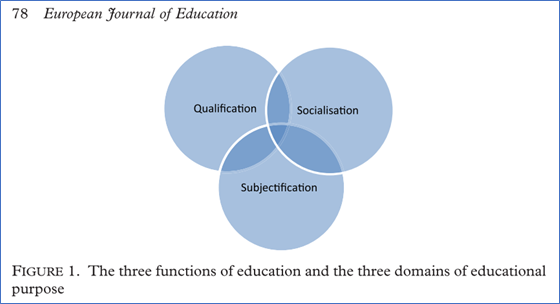The events of the past 2 years have weighed heavily on us all: the loss of loved ones, interruptions to normal life, changing of day-to-day behaviours and disruption to the development of our pupils. Throughout all the above, teachers have continued to work tirelessly, from learning to deliver online provision, to providing a safe place for some of our most vulnerable pupils to attend during the national lockdowns.
And now we are hopefully on the verge of a new dawn as we emerge from the pandemic. A chance for change, renewal and to embrace the valuable lessons learned from this trying time.
Before I go any further, I have 2 disclaimers to make:
1 – I believe Ofsted inspectors to be human beings motivated by wanting the best for children, I do not view them as the ‘bogeyman’ or as individuals trying to ‘catch us out’.
2 – Accountability has its place. It ensures that the end user, the children, get access to the quality of teaching they are entitled to. I am not claiming that exams and reporting of this aspect of school performance does not have a place.
During my recent EdD readings I have encountered Gert Biesta and how he discusses the question of the purpose of the education as being a “multidimensional” one (Biesta 2015, p.77) in which we should consider the following:
- Qualification – i.e. helping pupils to gain GCSEs etc,
- Socialisation – the “ways of being and doing” (cultures, traditions etc.),
- Subjectification – how education impacts on them as an individual, how it shapes them.

Teachers have had 2 years now in which the GCSE outcomes, reported as CAGs and TAGs, do not have a bearing on the judgement of a school. 2022 outcomes nationally are going to be terribly skewed this summer as the impact of COVID is felt in those areas in which attendance rates have been lowest, access to ICT has been scarce and, at times, even food has been hard to come by.
And yet, they will determine the direction of schools who experience an Ofsted visit soon after.
Imagine a world in which all three aspects of Biestas’ multidimension purpose equally informed the judgement of schools? No longer would schools be limited by their GCSE outcomes and P8 rating. The incredible work carried out by incredible teachers in the most difficult places to work would be truly recognised. Reports would be full of wonderful stories of how Headteachers carried food parcels to the doors of children and families who needed it, of those children who overcame a fear due to the intervention of their class teacher, or even quotes of some of the amazing comments about the school shared by staff and parents.
The conduct of many teachers and school leaders has been outstanding incredible, given the plight we have found ourselves in. (Namely without access to a staff room to drink alcohol in!) What an opportunity we have in front of us now, to change how schools are represented to the communities we serve, rather than fall back into pre-covid habits.
Wouldn’t it be lovely if school “performance” wasn’t driven by one aspect of the purpose of education?
Thanks for dropping by.
Dave
References:
BIESTA, G. 2015. What is Education For? On Good Education, Teacher Judgement, and Educational Professionalism. European Journal of Education, 50, 75-87.

